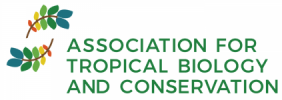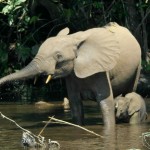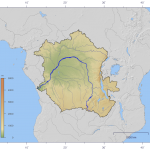The forests of the Greater Congo Basin, encompassing the contiguous forests of central Africa, comprise the second largest tropical wilderness area on Earth. They are home to forest elephants, giant pangolins, okapi, great apes, and many other unique animals. However, commercial hunting and trade in bushmeat is increasingly practiced at unsustainable levels, emptying forests of wildlife, threatening the conservation of regional biodiversity, jeopardizing the livelihoods of local people, and affecting the long-term stability of the region’s diverse and little-studied ecosystems.
The situation has grown urgent for many species, particularly for protected species, and is unlikely to improve unless well supported monitoring and enforcement are operational on the ground, and infractions followed up effectively in the courts. Still, it may not be possible to protect remaining faunas if commercial demand for protected species remains unchecked. Enforcement therefore must go hand in hand with efforts to end demand for protected species in urban and suburban markets.
The Congo hydrographic basin contains most of the forest in the region. It spans nearly all of the Democratic Republic of the Congo (DRC), and parts of Angola, Burundi, Cameroon, the Central African Republic, the Republic of the Congo, Rwanda, and Tanzania. The DRC alone contains roughly 60% of central Africa’s lowland forest cover and is thus a critical stakeholder in the region.
We applaud efforts in the DRC to establish Lomami National Park (9,000 km2), which is poised to be the first new National Park in the country in 40 years, and the first National Park in the region to be delimited through a participatory process involving local and regional stakeholders.
THEREFORE, BE IT RESOLVED that the Association for Tropical Biology and Conservation, the world’s largest scientific organization devoted to the study, protection, and sustainable use of tropical ecosystems, implores the Governments of countries in the Greater Congo Basin to take urgent and significant action to:
- Provide local communities practical support to ensure their rights over territory are respected and avoid the illegitimate and unsustainable use of wildlife by outsiders;
- Implement community and other wildlife management approaches that allow for the sustainable use of resilient non protected species;
- Encourage the NGO partners of wildlife administrations to maintain direct investment and involvement in conservation, and to coordinate efforts with the development community in order to help poverty reduction programs develop better conservation outcomes;
- Evaluate and update wildlife laws involving completely protected species;
- Strengthen enforcement of laws and penalties associated with the killing and sale of protected species, train and provide support for park guards to arrest commercial bushmeat traders;
- Lengthen the closed hunting season in the central DRC, and in other areas where this is expected to reduce highly unsustainable commercial hunting and trade by non-locals, with a net positive impact on the livelihoods of local subsistence hunters;
- Improve monitoring of commercial bushmeat harvesting and trade, particularly at the port, market and road barrier levels;
- Undertake scientifically-sound assessments of wildlife on a regular basis to determine whether upgraded legal protection is warranted;
- Seek collaboration with scientists and conservationists to achieve these goals;





